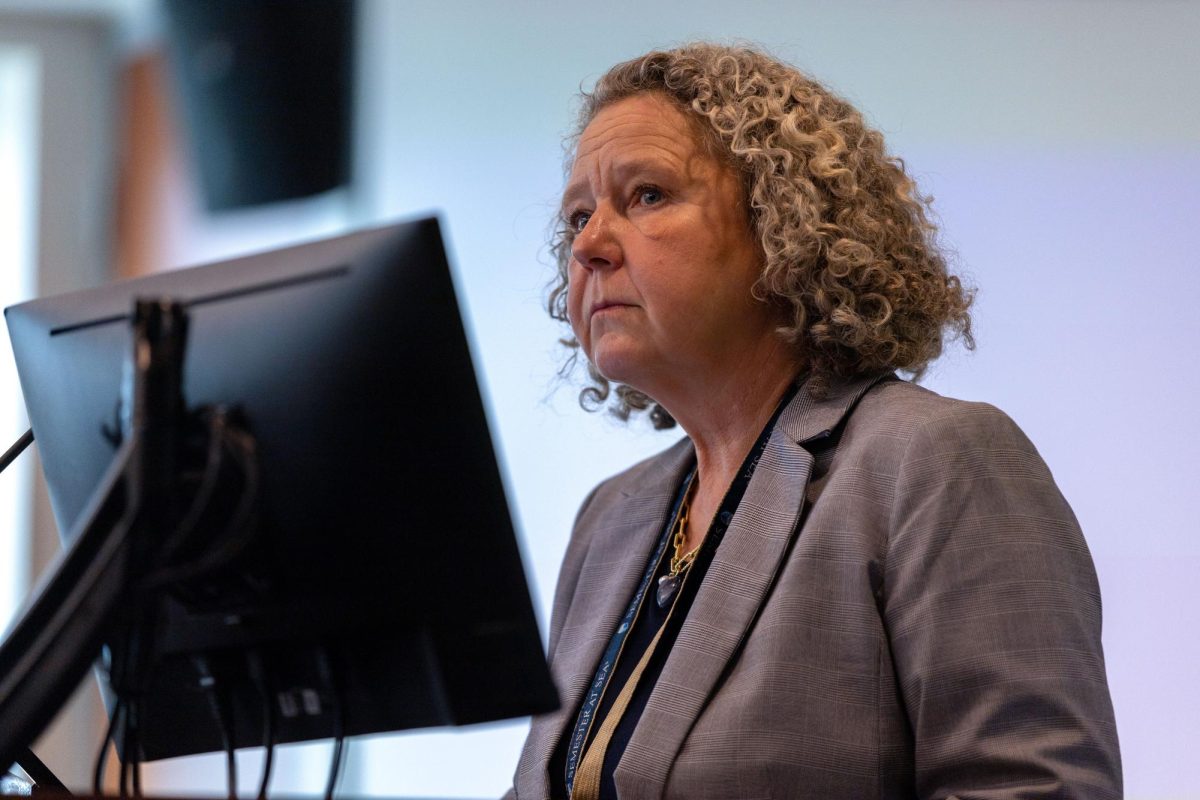Ambassadors from Germany, Portugal and Slovenia said the European Union said they care deeply about the presidential elections in the United States, and that the organization will support whoever is elected as a way to maintain strong ties between democracies in a speech at the Elliott School Tuesday.
“The U.S. elections matter tremendously since the U.S. is the most important non-EU member country to us,” German Ambassador Klaus Scharioth said. “We are probably the most influenced by your decisions.”
Web Extra
The event brought together the ambassadors of the first three countries who participated in the triple-shared presidency of the organizations. The governments of these countries are highly influential in the decisions made by the EU. Slovenia’s term will end in June.
“We only make 8 percent of the world’s population,” Scharioth said. “If we work together with the United States, we have the opportunity to spread the ideals of Enlightenment – ?democracy freedom of speech, freedom of the press – which are very apparent to us but not to the rest of the world.”
The ambassadors also discussed EU enlargement in reference to Turkey and nations in eastern Europe. Many see these countries as too different both culturally and historically to join the EU.
“This is not a club of convenience,” Scharioth said. “Whoever joins us must subscribe fully to the values of democracy.”
The ambassador from Slovenia, Samuel Zbogar, said his country’s administration would like to facilitate the process of becoming a member state during its presidency. Slovenia joined the European Union in 2004.
“Our transition from independence in 1991 to holding the EU presidency now in 2008 speaks of the progress we have made,” Zbogar said.
“We are passionate about the EU because we know what the EU has made out of us,” he added.
The new system of the triple-shared presidency began in 2007. Each country holds the office of the presidency for six months, and the three countries work during the 18-month term on common goals.
“The shared presidency allowed us to have a more open and flowing system than what we had before, it allowed us to retain this element of continuity,” said Portuguese Ambassador Joao de Vallera.
The new system also comes with challenges.
“There are so many intricate, very important details that may not touch your own country but touch three or five of the countries, that you have to learn about them,” Scharioth said.
The Elliott School Ambassadors Panel series and the Institute for European, Russian, and Eurasian Studies hosted the speech.
“This is one of the reasons students come to study at GW, to be able to hear and learn from policymakers and get a sense of what the job entails,” said Hope Harrison, director of the institute and moderator.
Harrison added that the event had been in the works since last semester, when doctoral student Brian Karlsson approached her with the idea.
“These are very different and unique countries sharing the same institution of the EU presidency,” Karlsson said in an interview. “I was interested in learning how they approached the job in different ways.”
Students said the ambassadors spoke without using diplomatic jargon that can distance the speakers from the audience.
Graduate student Valerie Reed said, “A lot of times when you hear ambassadors speak they are very superficial in their answers, but this was a pretty accessible discussion.”






